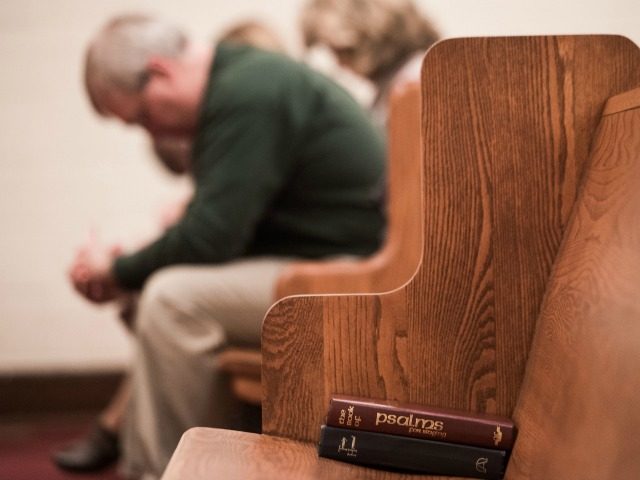A federal court ruled Friday against a coalition of atheists who brought a lawsuit against the Pennsylvania House Speaker, claiming the body violated the Establishment Clause of the Constitution by prohibiting them from offering the prayer.
The U.S. Court of Appeals for the Third Circuit ruled 2-1 in Speaker v. Fields that it is not unconstitutional to bar atheists, who do not acknowledge God, from offering the prayer in the legislature.
Judge Thomas Ambro, a Clinton nominee, wrote the majority opinion:
As to the Establishment Clause, we uphold the policy because only theistic prayer can satisfy the historical purpose of appealing for divine guidance in lawmaking, the basis for the Supreme Court taking as a given that prayer presumes a higher power. For the Free Exercise, Free Speech, and Equal Protection Clauses, we hold that legislative prayer is government speech not open to attack via those channels.
The nontheists also challenge as unconstitutionally coercive the requests to “please rise” for the prayer. We hold that the single incident involving pressure from a security guard is moot. As for the sign outside the House chamber and the Speaker’s introductory request that guests “please rise,” we hold that these are not coercive.
“History supplies our method of analyzing cases involving legislative prayer,” the judge continued. “In Establishment Clause challenges like this, we ask ‘whether the prayer practice’ in question ‘fits within the tradition long followed in Congress and the state legislatures.’”
Overall, this is a great decision that underscores the legitimate place of religion in our history and culture. Religious prayer by legislators seeking diving guidance accommodates the free exercise of religious believers without infringing the rights of the nonreligious. /FIN
— Eric Baxter (@esbax) August 23, 2019
Ambro also cited current Supreme Court Justice Ruth Bader Ginsburg in the majority decision:
The assumption that prayer must be theistic apparently persuaded then-Judge Ruth Bader Ginsburg that Congress’s practice of excluding nontheists from offering opening prayers did not violate the Establishment Clause.
“The assumption that prayer must be theistic apparently persuaded then-Judge Ruth Bader Ginsburg that Congress’s practice of excluding nontheists from offering opening prayers did not violate the Establishment Clause,” he wrote.
Becket Law, which filed an amicus brief on behalf of several chaplains, explained that, in August 2018, the lower court ruled in favor of the atheist group, deciding that the Pennsylvania State House policy was in violation of the Constitution by not allowing the atheists to offer the prayer.
The Court of Appeals for the Third Circuit, however, has now reversed that decision.
“Overall, this is a great decision that underscores the legitimate place of religion in our history and culture,” tweeted Eric Baxter, senior counsel at the Becket Fund for Religious Liberty. “Religious prayer by legislators seeking diving guidance accommodates the free exercise of religious believers without infringing the rights of the nonreligious.”

COMMENTS
Please let us know if you're having issues with commenting.